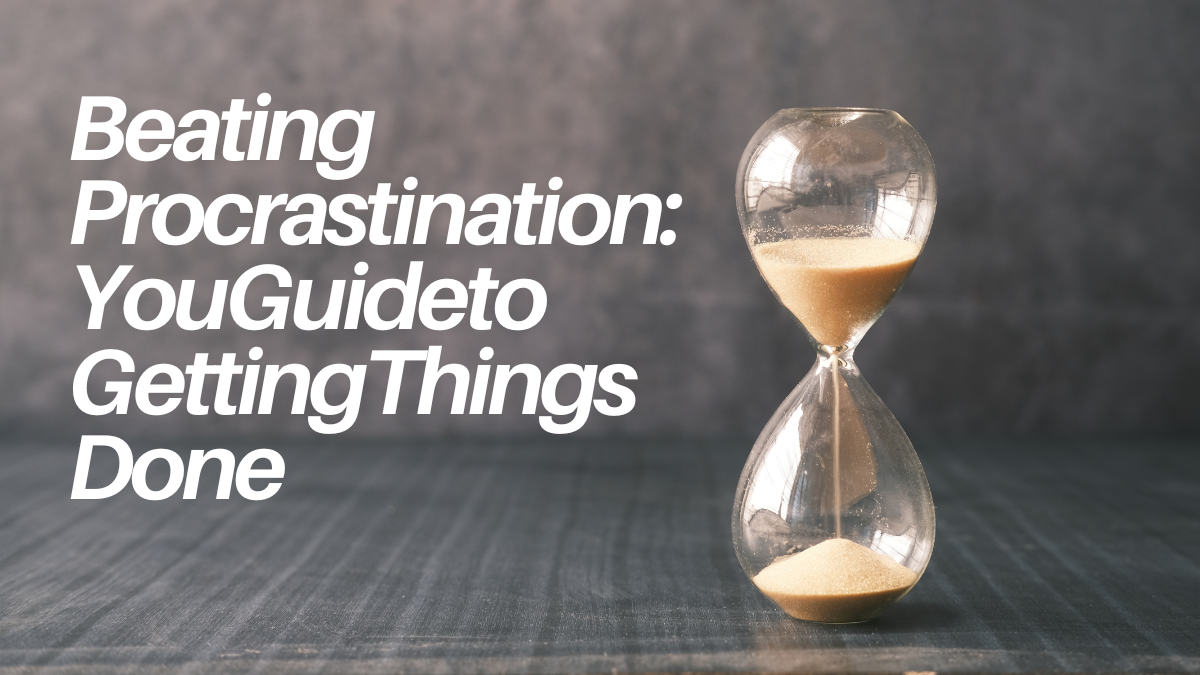Welcome, fellow procrastinators! If you’re anything like me, you know the struggle of putting off tasks until the last minute, only to feel overwhelmed and stressed later. But fear not! In this comprehensive guide, I’ll share practical tips and strategies to help you overcome procrastination and reclaim control of your time and productivity.
Table of Contents
Understanding Procrastination
Let’s begin by identifying procrastination, our arch-enemy. Delaying or postponing chores is known as and it frequently has a negative impact on our wellbeing and productivity. We’re all familiar with the voice in our thoughts that says, “I’ll do it later.”

Why Do We Procrastinate?
The first step to conquering procrastination is realizing its underlying causes. Here are some common reasons why we procrastinate:
Fear of Failure: We put off starting the task altogether out of concern that we wouldn’t succeed.
Perfectionism: We put off starting until the perfect circumstances arise because we want everything to be perfect.
Lack of motivation: We are more likely to put off a task if it doesn’t thrill us or fit with our objectives.
Ineffective Time Management: It’s easy to procrastinate until the last minute when there’s no clear plan or routine.
Consequences of Procrastination
Procrastination may seem harmless at first, but it can have serious consequences:
more tension: As deadlines approach, we experience more tension and anxiety the longer we put off chores.
Missed possibilities: Delays can cause people to miss important dates, pass up possibilities, and cause tension in their relationships.
Decline in Quality: Hastily finishing assignments at the last minute frequently leads to shoddy work.
Negative Effects on Health: Procrastination for extended periods of time has been connected to higher stress and depression levels as well as physical health issues.
How to Overcome Procrastination
Now that we understand the enemy, let’s arm ourselves with strategies to defeat it:
Break Tasks Into Smaller Steps
The sensation of overwhelm is fertile ground for procrastination. Divide complicated jobs into smaller, more doable steps. Rather than obsessing over the job as a whole, concentrate on finishing one step at a time. One step at a time, you’ll have scaled the mountain before you know it.
Set Clear Goals and Deadlines
When objectives and due dates are unclear, it’s easy to put off tasks indefinitely. To hold yourself accountable, give each task a clear, attainable goal along with a reasonable timeframe. To stay on course, write them down and consult them frequently.
Eliminate Distractions
The greatest ally and worst enemy of the procrastinator is distraction. Determine the sources of your greatest distractions—social media, television, loud surroundings, etc.—and take action to reduce them. Establish a separate, distraction-free workstation, and think about blocking distracting websites during work sessions with apps or browser extensions.
Find Your Peak Productivity Time

Everybody has periods of the day when they are the most focused and awake. Determine when you are most productive, then plan your most difficult assignments for this period. Matching your duties to your natural energy levels—whether you’re a night owl or a morning person—will help you work more productively and prevent procrastinating.
Reward Yourself
Finally, remember to treat yourself when you accomplish your goals and make progress. After finishing a task or hitting a goal, reward yourself with something fun. Treating yourself to a movie night, a little break, or your favorite snack can all serve as rewards. You will be more driven to overcome procrastination if you associate positive rewards with work.
FAQ
Q: Is procrastination a sign of laziness?
A: No, procrastination is often a result of underlying issues such as fear, perfectionism, or poor time management. It’s a habit that can be overcome with effort and the right strategies.
Q: How do I stop procrastinating when I’m overwhelmed?
A: Break tasks into smaller steps, prioritize them and focus on completing one step at a time. Never forget that any development is still progress, regardless of its size.
Q: Can procrastination be beneficial?
A: While occasional procrastination may provide temporary relief, chronic can have detrimental effects on productivity, well-being, and overall success.
Conclusion
We’ve all encountered procrastination at some point in our lives, but it doesn’t have to rule us. We may recover our time and productivity by comprehending the reasons behind our procrastination and putting workable solutions in place to address them. Remember that the fundamental objective is growth, not perfection. So let’s get our hands dirty, attack those assignments, and finally wave goodbye!
If you love personal development and goal-setting, you can check our Blog for useful information

